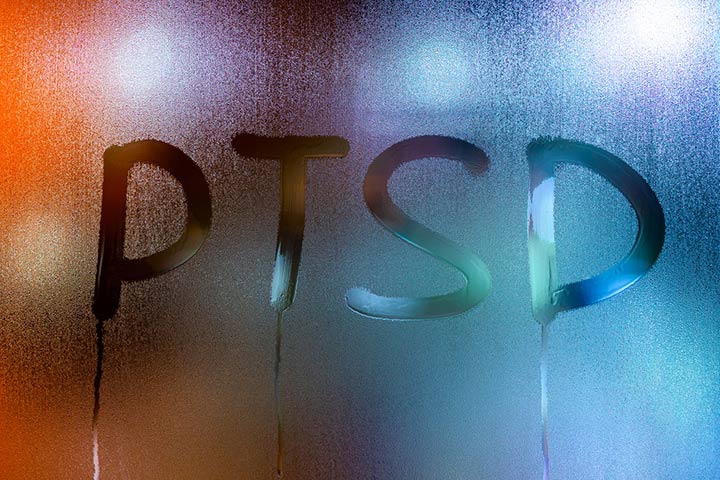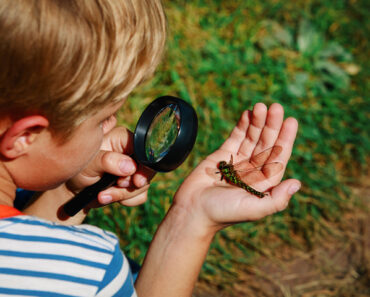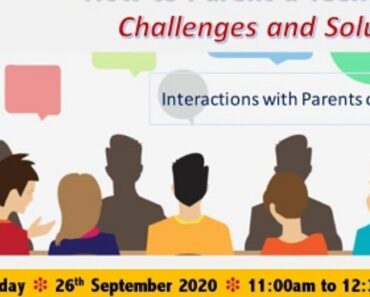Post-traumatic stress disorder (PTSD) is a mental health condition that may occur in children after exposure to a traumatic event. Children with PTSD may re-experience or avoid things related to the disturbing event.
According to the US National Center for PTSD, 5 to 43% of girls and 14 to 43% of boys may experience at least one traumatic event during childhood and adolescence, and about 3 to 15% of girls and 1 to 6% of boys had PTSD. Neglect from parents or primary caregivers is the major cause of PTSD in children, accounting for 65% of cases.
If left unmanaged, PTSD can interfere with a child’s functioning and affect their quality of life. Read this post to learn about the causes, symptoms, diagnosis, treatment, and prevention of post-traumatic stress disorder in children.
Causes Of PTSD In Children
Witnessing or experiencing traumatic events that may have happened to self or someone close to them can trigger PTSD in children. The following traumatic events may trigger PTSD in children.
- Accidents, such as train wrecks or car collisions
- Invasive medical procedures
- Natural disasters, such as earthquakes or floods
- Sexual abuse and sexual assault
- Physical abuse
- Bombings
- Animal bites
- Violent personal attacks, such as rape, kidnapping, torture, or mugging
- Neglect from parents or caregivers
- Bullying and emotional abuse
Not all children who experience these events may develop PTSD. The immediacy and severity of the trauma may also play a crucial role. Strong support and encouragement after a traumatic event is a critical protective factor that can help prevent or reduce the risk of PTSD in some children.
Signs And Symptoms Of PTSD In Children
Children with PTSD can experience the following types of symptoms.
1. Re-experiencing the trauma
Some children may have flashbacks of the traumatic event and often assume that they are going through it again. The following symptoms are common in children re-experiencing the trauma.
- Having nightmares about the traumatic event or other scary things
- Hallucinating the smells or sounds from the experience
- Often narrating the trauma to others verbally or in play
Children with PTSD may not be able to stop thinking about the event, even though it scares them. These sudden and unwanted traumatic memories may often prevent a child from experiencing current events around them.
2. Avoidance
Some children with PTSD may deliberately avoid objects, places, situations, or even thoughts that remind them about the traumatic event. They may also
- Show numbness to feelings and surroundings as a form of coping mechanism.
- Have difficulty remembering details of traumatic events.
Emotional avoidance can be a coping mechanism in many children with PTSD. However, in the long run, it may worsen the child’s condition and quality of life.
3. Increased agitation
Some children with PTSD may presume that the trauma or emergency may happen again and show the following symptoms.
- Trouble falling asleep (insomnia)
- Unable to concentrate on regular activities and school works
- Easily frightened or startled
- Angry outbursts without any provocation
Disruptive and out-of-control behavior, extreme separation anxiety, etc., are seen in young children who cannot verbalize their feelings or thoughts of traumatic experiences. In addition, they can have an extreme fear of being away from parents or caregivers.
How To Prevent PTSD In Children?
The following measures may reduce the incidence of post-traumatic stress disorder in children who have witnessed or experienced trauma.
- Appropriate parental support and encouragement
- Psychiatric counseling from experts
- Community and school-level prevention programs
- Positive reinforcement and other effective parenting strategies
Prevention is not limited to these measures. Talking to your child and assuring them that you will be there for them every step of the way could make a difference in their lives.
When To See A Doctor?
Seek medical care if your child has any symptoms of PTSD. It is recommended to seek immediate care if they experience extreme anxiety or depression, hallucinations, inability to sleep or eat for three days, or display concerning behaviors. Also, seek emergency help if they have suicidal tendencies.
Diagnosis Of PTSD In Children
A qualified mental health professional or a psychiatrist can diagnose PTSD based on a comprehensive psychiatric evaluation of the child. In addition, talking to the child and parents may help them know the symptoms.
Not all children who experience trauma develop PTSD. It is diagnosed if a child has persistent symptoms that last more than a month and affect normal functioning.
PTSD symptoms may not be obvious immediately after the trauma. The symptoms may often begin within three months after a traumatic event or may even develop several months or years later in some children.
Treatment For PTSD In Children
PTSD treatment may vary depending on a child’s age, symptoms, severity, and health status. However, early treatment can ease the symptoms and aid in the child’s normal development and improve their quality of life. The following treatments are often recommended for children with PTSD.
- Cognitive-behavioral therapy (CBT) to help a child handle their anxiety and overcome the event that triggered PTSD
- Medications for children who have anxiety or depression due to PTSD. Psychiatric medications may help them stay calmer.
Children with PTSD may recover within six months, and a few may experience symptoms for a longer time. Recovery may depend on individual factors such as coping skills, inner strength, and family encouragement and support.
How To Help A Child Live With PTSD?
As a parent, you may do the following to help your child cope with PTSD.
- Admit what happened and try to understand your child. Pretending that it is normal may not help them recover.
- Encourage your child to attend counseling sessions after they have gone through a traumatic event.
- Never skip scheduled therapy sessions and follow-up visits.
- Inform teachers and peers about your child’s This may help them support your child.
- Seek support from local and online sources and parents dealing with the same situation.
- Take signs of depression and suicidal thoughts seriously and seek emergency support.
PTSD can be accompanied by anxiety and depression in many children, which may severely impact them if left unmanaged. Early treatment helps reduce these impacts and improves the child’s quality of life. In addition, support and encouragement from parents and caregivers play vital roles in treating and preventing PTSD in children.


































